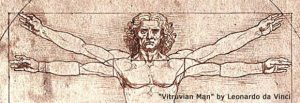Applied Kinesiology can help restore normal function to the nervous, endocrine, immune, and digestive systems, and determine previously unsuspected food or chemical sensitivities. By addressing the underlying health of these systems it can treat symptoms such as IBS, autoimmune conditions, fatigue, stress, metabolic syndrome as well as men and women’s health issues. The goal of Applied Kinesiology treatment is to intervene early enough to prevent illness and increase overall health and well-being.
What is Applied Kinesiology?
Applied Kinesiology is primarily concerned with the assessment of neuromuscular function (i.e. how well the nervous system is activating and regulating muscles) and how it relates to the regulation of structural, chemical and mental aspects of physiology. It recognises that the body is an integrated, self-healing and self-regulating system. A central tenant of Applied Kinesiology is that in order to achieve and maintain overall health the structural, biochemical and mental/emotional aspects of health must be addressed and supported as deterioration in the health of any one of these can affect all three

.
History of Applied Kinesiology
Applied Kinesiology(AK) uses manual muscle testing (MMT), which was first introduced by George Goodheart Jr. D.C. (Doctor of Chiropactic) in 1964 to assess various forms of body dysfunction. Early on it was recognised that treatments with Chiropractic, Osteopathy, Acupuncture and Nutrition made immediate and significant improvements in neuromuscular function when assessed by MMT. AK developed from the study of which treatments and nutrition protocols lead to a consistent improvement and added certain treatments unique to AK.
What to expect in an AK session?
A full and detailed history by the practitioner is essential to an Applied Kinesiology consultation. The practitioner will allow the client to talk to gain an insight into their overall physical, biochemical and mental wellbeing. The AK practitioner will perform a variety of muscle tests to establish the main areas of dysfunction. AK is an active process with an immediate source of feedback through muscle testing. Clients are then empowered to take an active role in improving their own health through nutrition, dietary and lifestyle recommendations recommended by the AK practitioner.
What are common issues that AK can treat?
- Allergies, including asthma, eczema and hayfever
- Stress and stress-related disorders
- Recurrent ear, nose and throat infections
- Hormone related disorders e.g. adrenal, reproductive and thyroid issues
- Symptoms of PMT and menopause
- Irritable bowel syndrome
- Post viral syndrome/Chronic fatigue
- Food intolerances
- Toxicity issues
- Sleep pattern disorders
How does Applied Kinesiology differ to other types of Kinesiology?
Dr George Goodheart founded Applied Kinesiology and only those practitioners trained with the International College of Applied Kinesiology use this term. Members of ICAK have done at least a 100 hours course in Applied Kinesiology techniques. Only those trained as doctors, osteopaths, chiropractors, acupuncturists or others who have medical orientated qualifications are able to do the ICAK course.
